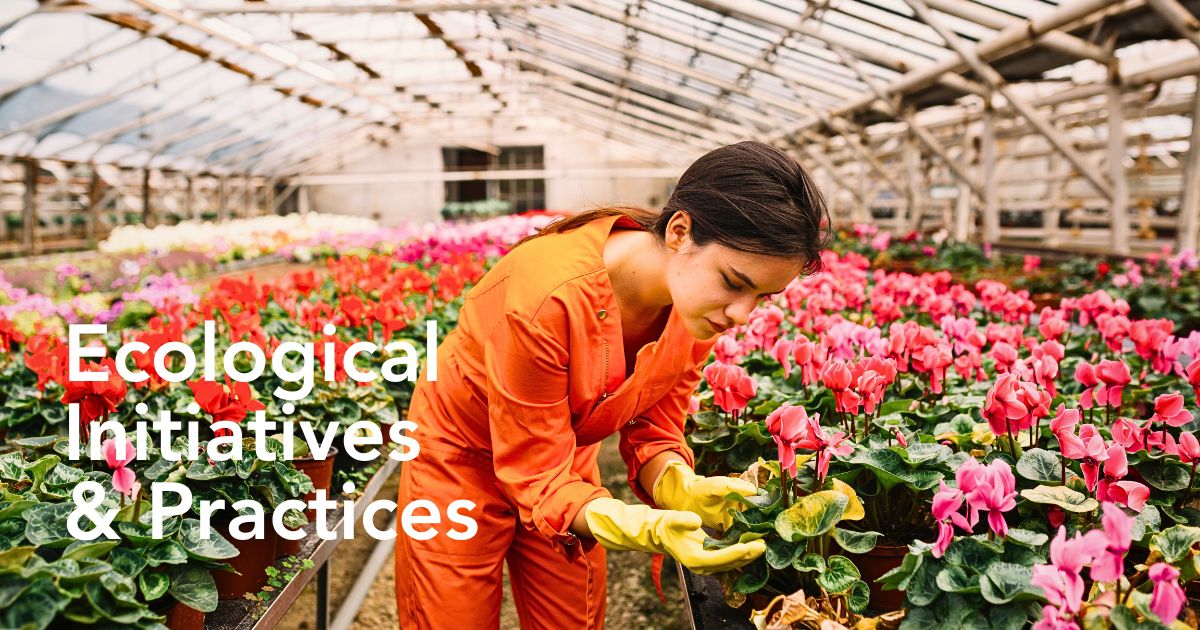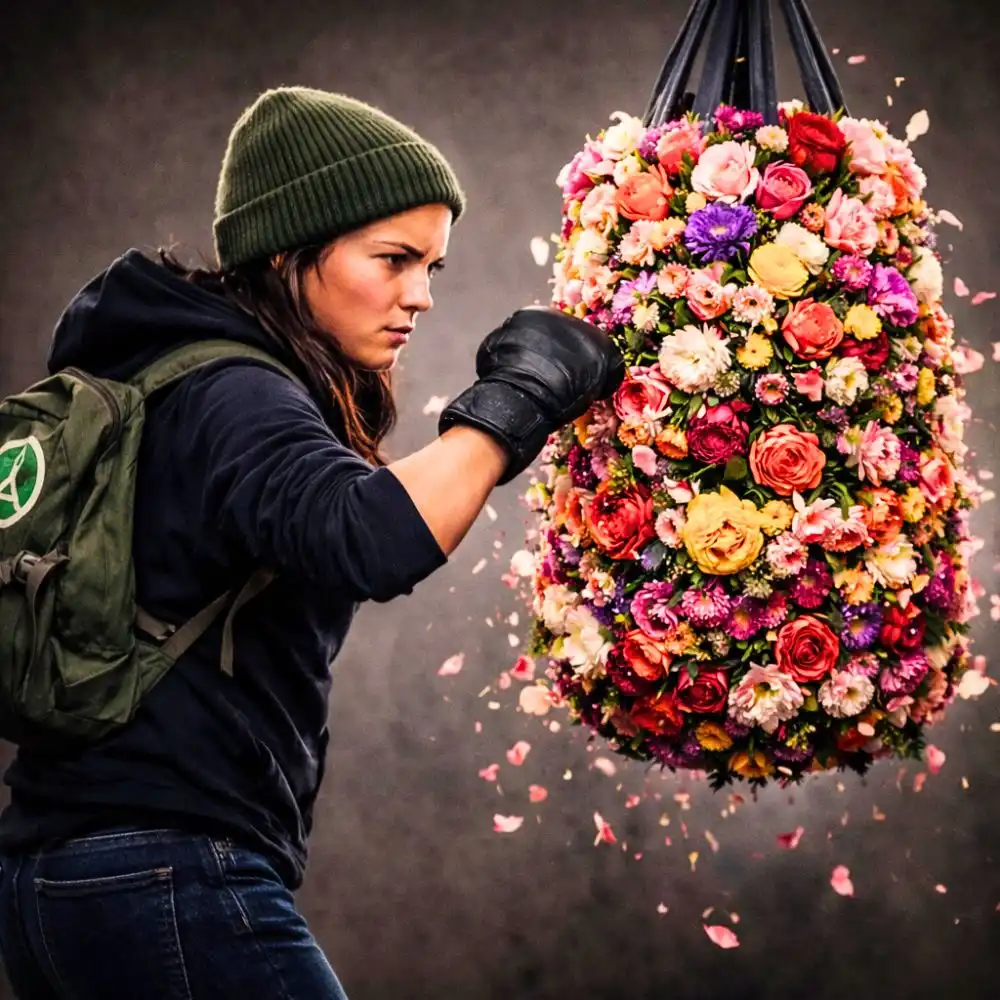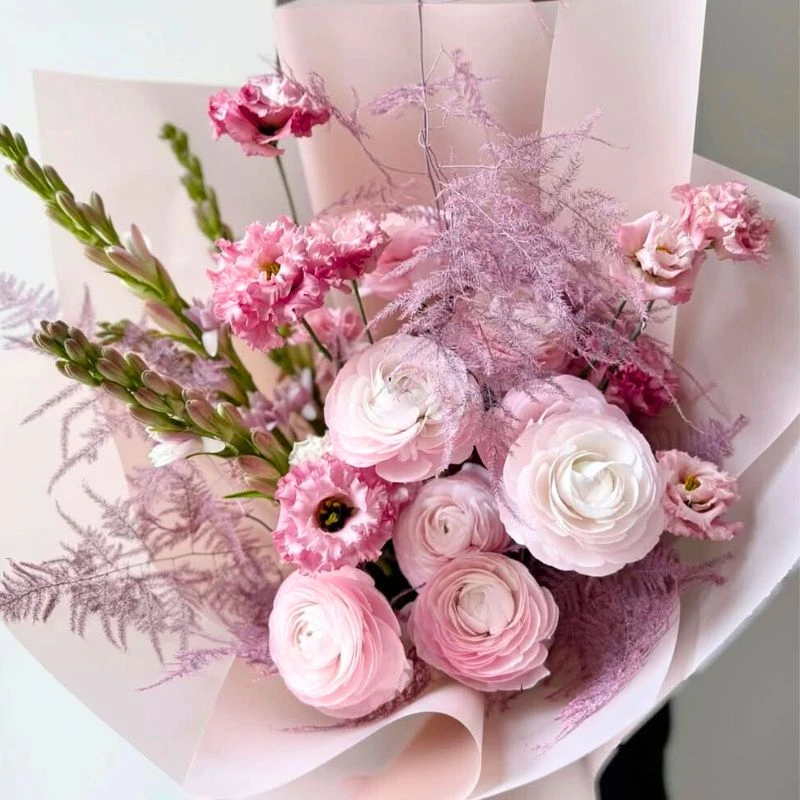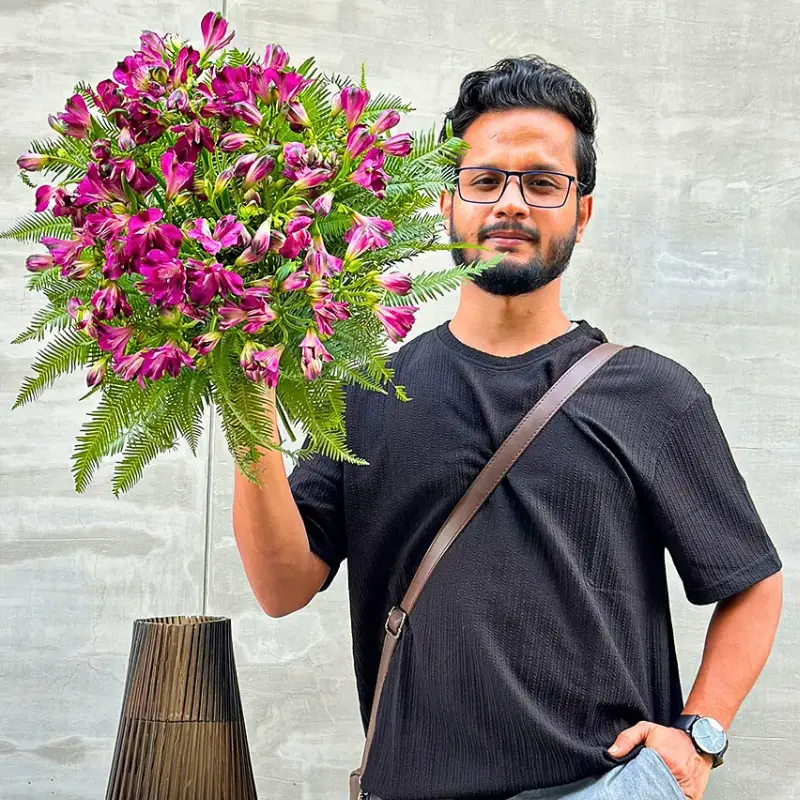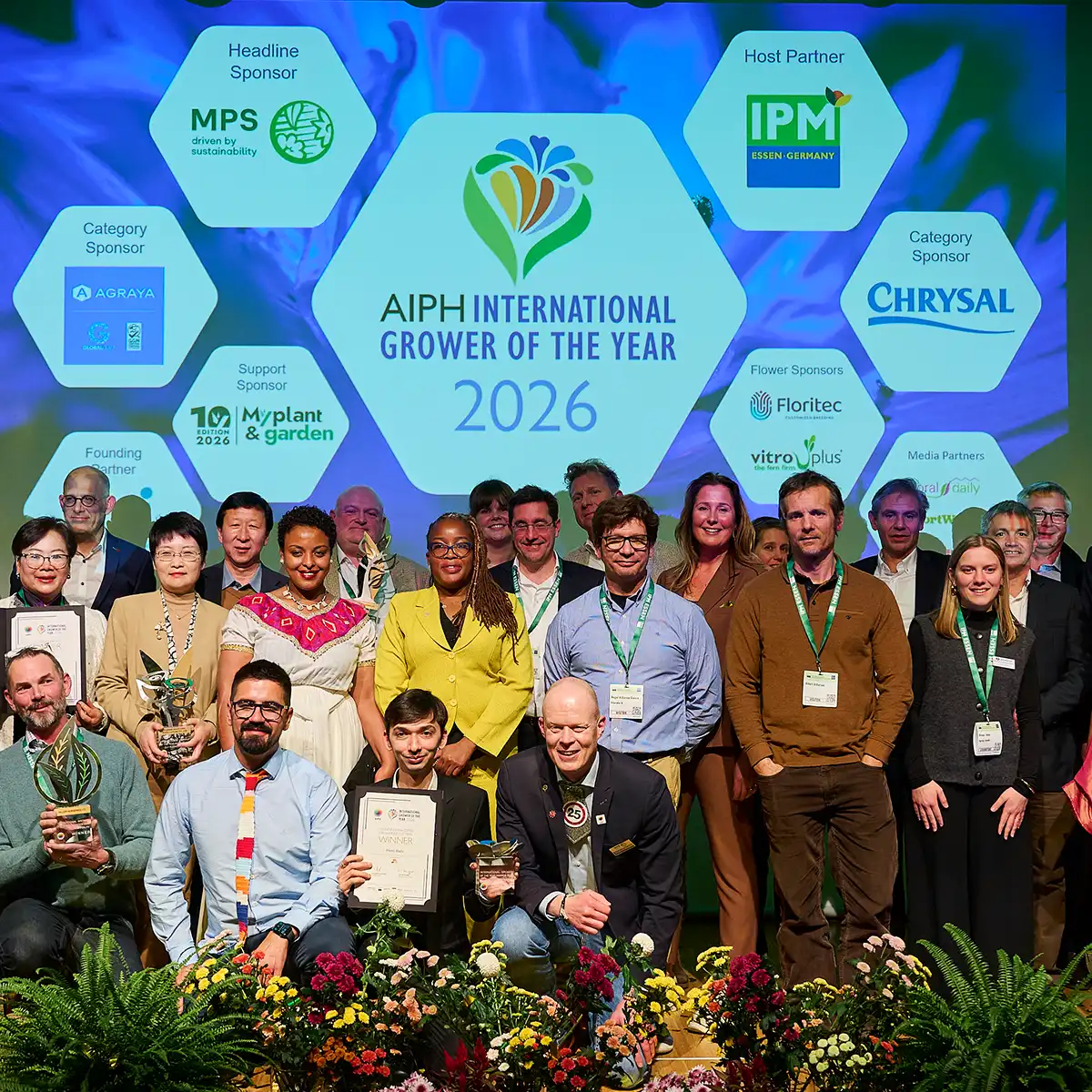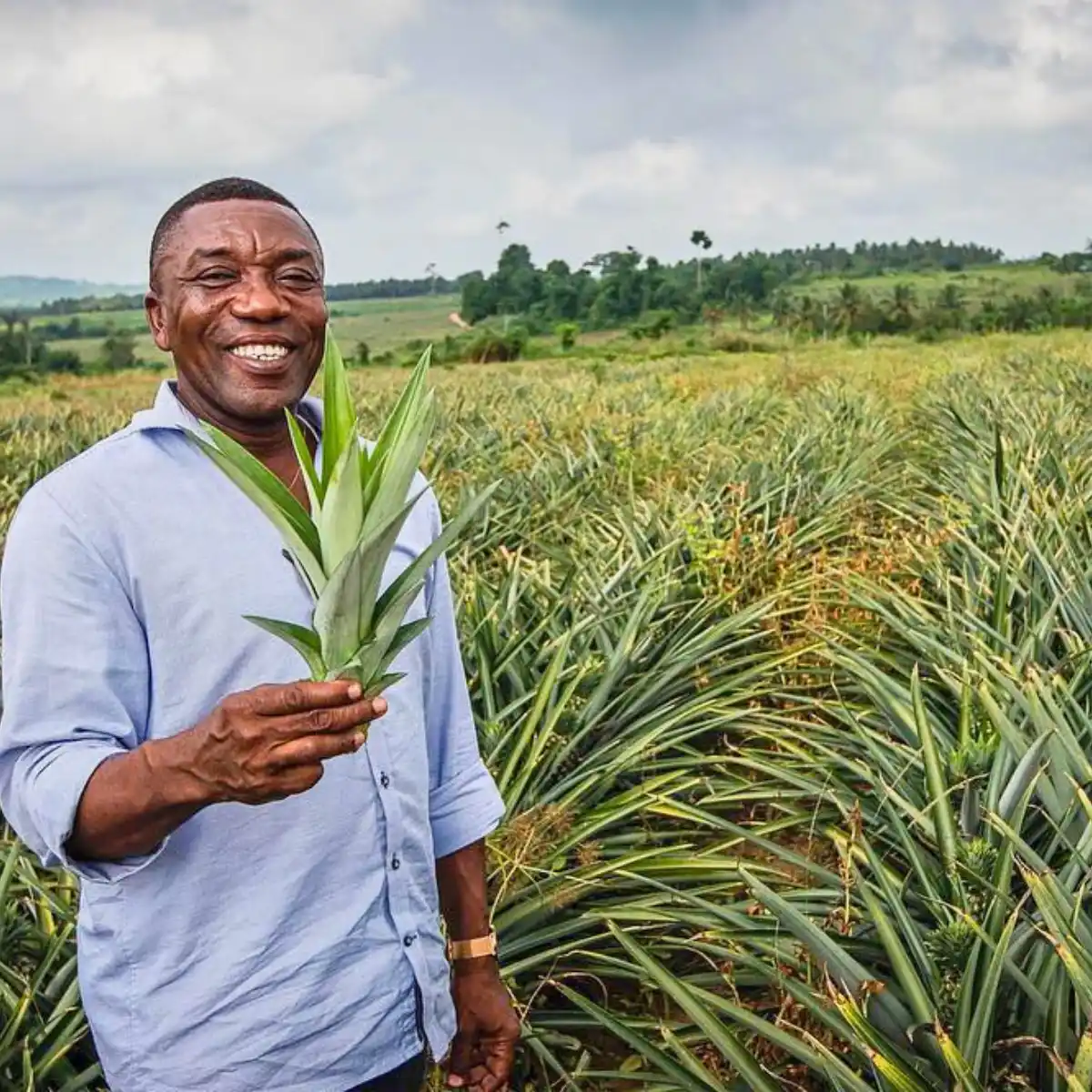The floriculture industry is experiencing outstanding growth alongside a surge in sustainable practices that are reshaping how flowers are produced, packaged, and sold. From innovative certification programs and natural pest control methods to carbon-neutral production and eco-friendly packaging solutions, the flower sector is embracing comprehensive environmental responsibility.
This transformation spans the entire supply chain, from breeders and growers implementing renewable energy systems to those who source, logistics, wholesalers, retailers, and florists adopting foam-free arrangements and locally sourced blooms. Regardless of one's place in the value chain, understanding these sustainable initiatives has become essential for staying competitive in an increasingly environmentally conscious market.
Getting a Grasp of Some Sustainable Initiatives in Floriculture
From certifications in sustainability to choosing to work with locally grown flowers, much has been achieved in all aspects of the flower industry. But there, still, is a lot to do and gain. Practically everyone knows that sustainability is a hot topic currently. In turn, there is a lot about sustainable floricultural practices and initiatives being implemented. These could see flower businesses perform better and enhance their sustainability metrics. So, here are a few such initiatives driving the industry.
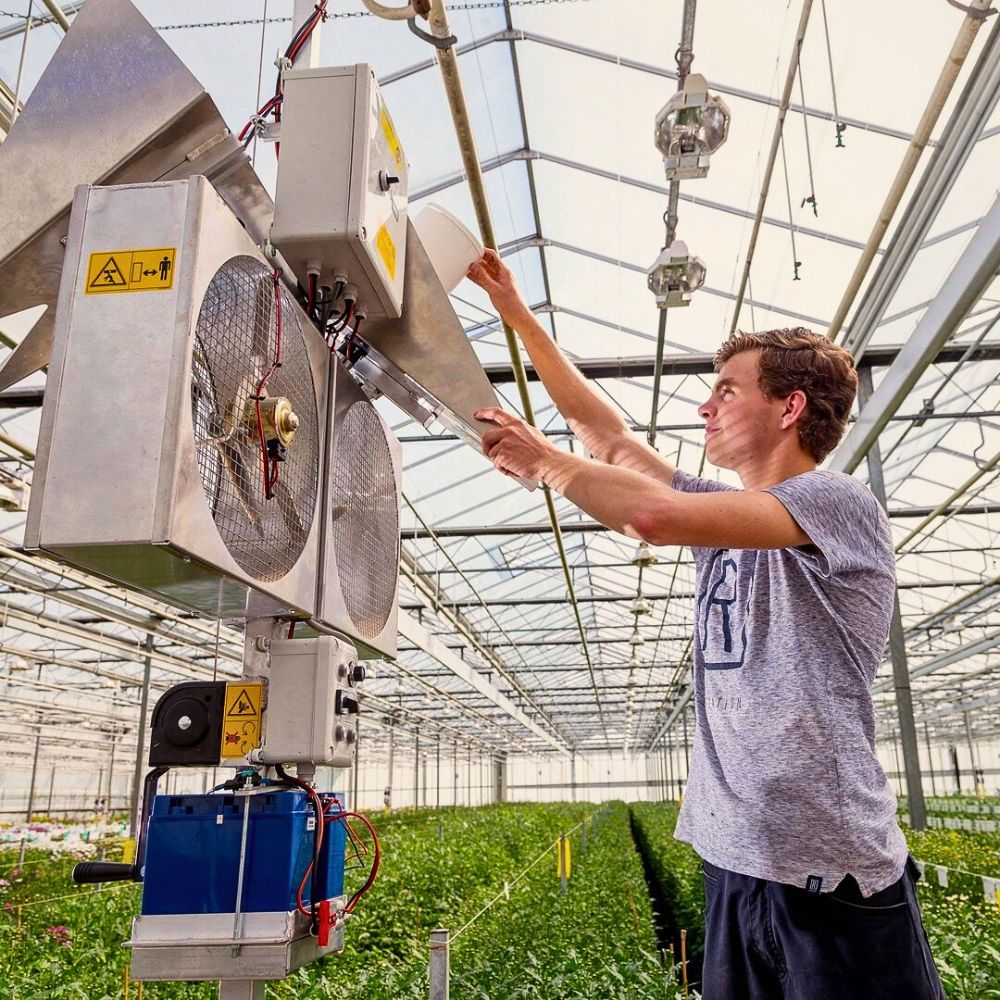
The Floriculture Sustainable Initiative
The Floriculture Sustainable Initiative (FSI) was founded in 2012 by multiple stakeholders in the floriculture sector to create a pre-competitive initiative, making sustainability a license to operate. They share the goal of finding more sustainable solutions for farmers, for the environment, and for the future of the sector. Essentially, FSI members collaborate to improve practices and drive positive change towards the sustainable production and trade of flowers and plants. You can read more about some of the sustainability-driven activities that this initiative does.
MPS Certification
As one who has been in the industry for long enough, you must have heard of the MPS. As a breeder, grower, or wholesaler, you should have heard of them. MPS is committed to making the global horticulture sector more sustainable. They achieve this by making the sustainability efforts of horticultural companies transparent and measurable. To achieve that, MPS develops and manages a range of certificates and online and offline tools. Do MPS-ABC, MPS-GAP, MPS-ProductProof, or MPS-Socially Qualified ring a bell? And how does this serve you? Here’s how they work.
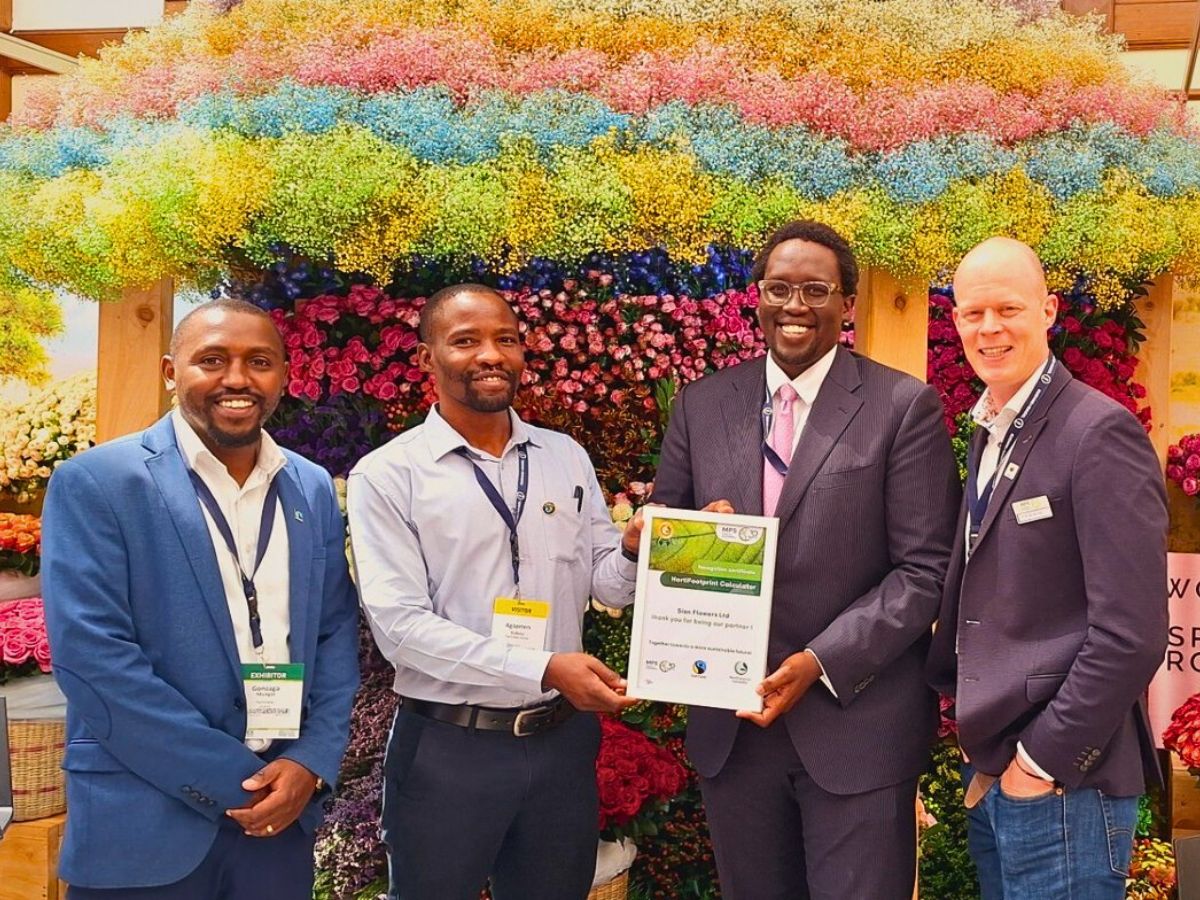
Fairtrade
Fairtrade flower certification ensures ethical production through rigorous social, environmental, and economic standards. Working with at least 74 certified flower producer organizations across six countries, Fairtrade represents over 73,000 workers and generates significant Fairtrade Premium payments—over £6.4 million in 2020 alone. The certification guarantees formal labor contracts, fair wages, and gender equality programs while maintaining strict environmental criteria, including reduced water consumption, waste management, and prohibition of highly toxic pesticides. Fairtrade-certified flowers are known to show environmental superiority.
Florverde Sustainable Flowers
Florverde Sustainable Flowers (FSF) is Latin America’s leading independent social and environmental certification standard, built on over 20 years of sustainable agriculture experience. Currently certifying about 2,215 hectares in Colombia, the program ensures 40% of Colombian flower exports meet its comprehensive sustainability requirements. The certification covers 14 critical areas, including water management, soil conservation, biodiversity protection, and workers' rights.
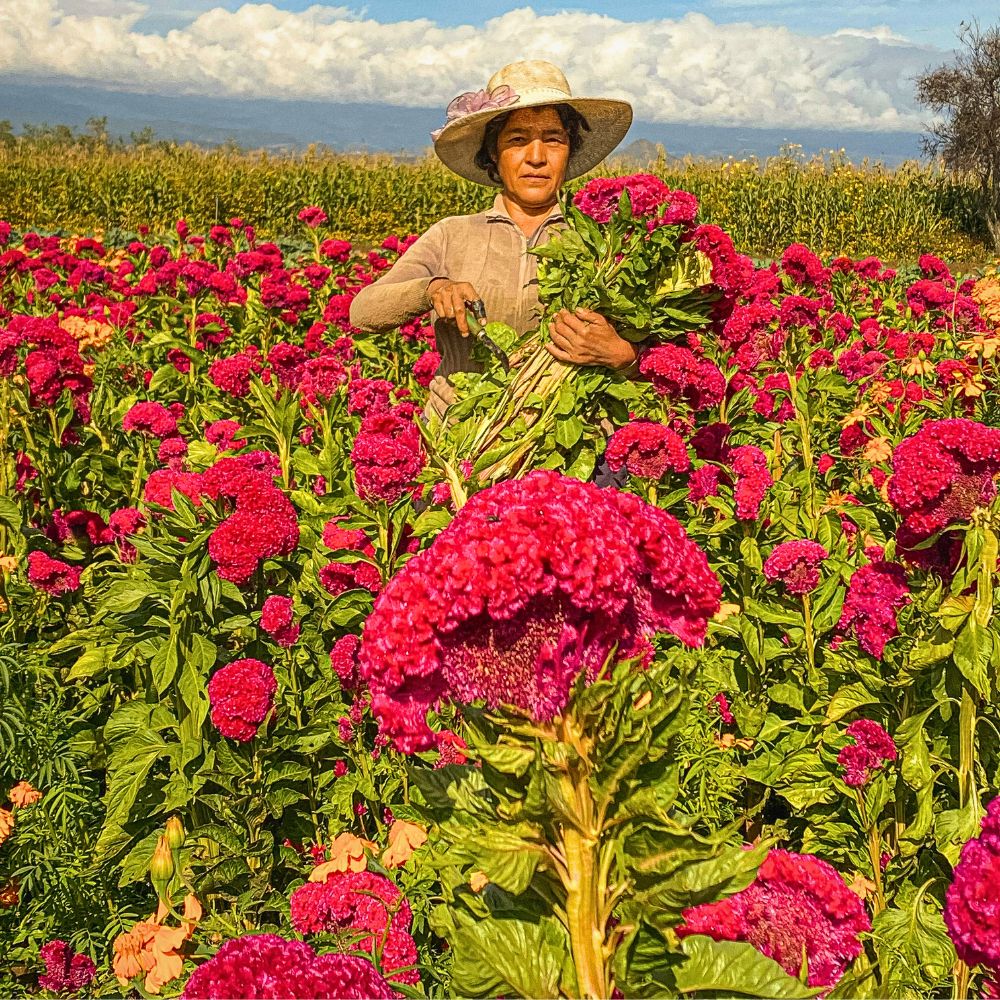
Florverde-certified farms demonstrate significant environmental achievements, with up to 57% of water sourced from rainwater collection and 95% utilizing efficient drip irrigation systems. The program recently achieved international recognition through the Consumer Goods Forum's Sustainable Supply Chain Initiative (SSCI), validating its global credibility.
Sustainabloom
Sustainabloom is an innovative educational initiative established by the American Floral Endowment (AFE) in 2022. Unlike traditional certification programs, Sustainabloom functions as a comprehensive resource hub providing research-driven educational materials and practical guides for sustainable floriculture practices. The initiative offers comprehensive guides covering topics from composting and nutrient management to diversity, equity, and inclusion, carbon accounting, and energy efficiency. It serves all industry segments—growers, wholesalers, and retailers—with accessible, user-friendly resources designed to bridge the gap between sustainability aspirations and practical implementation.
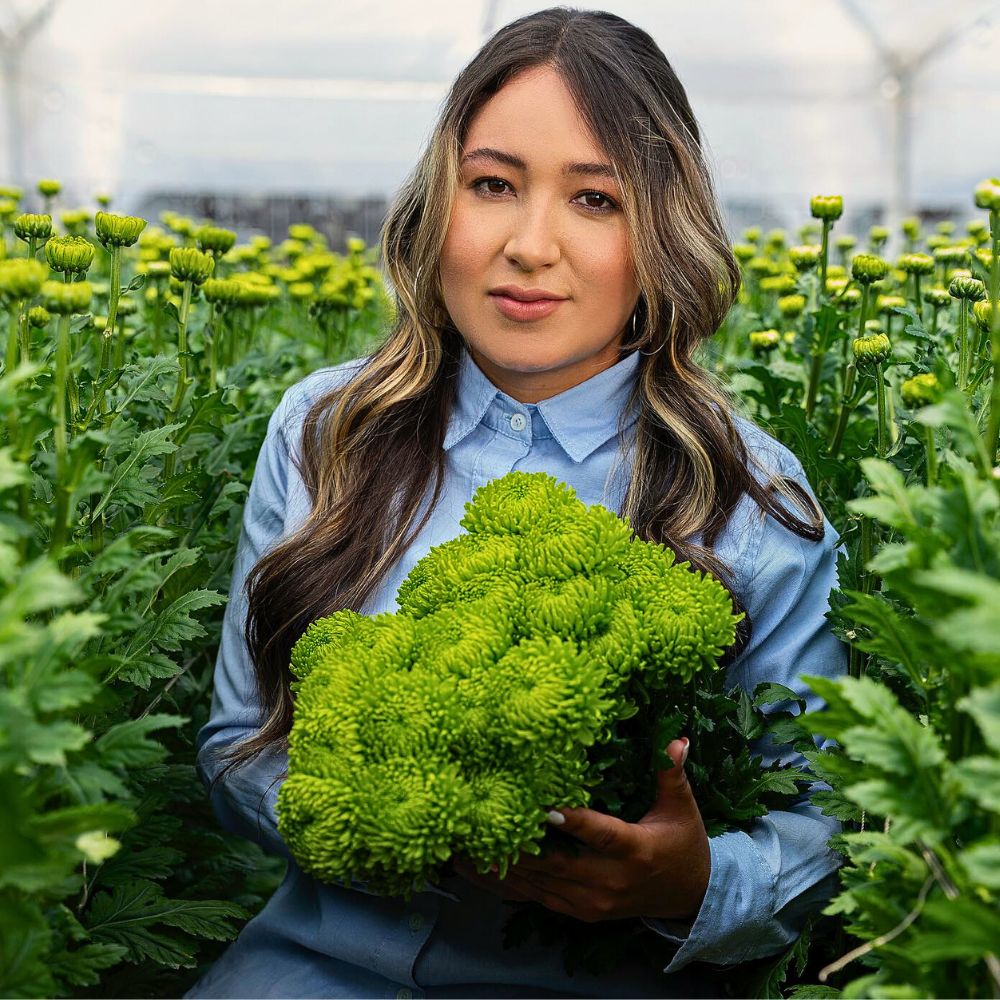
Natural Pest Control
These are solutions from nature itself. That is what they work with at institutions like Koppert Biological Systems. Together with growers and in collaboration with nature, they are committed to making agricultural and horticultural products healthier, safer, more productive, and more resilient. They achieve this by using natural enemies and microorganisms to combat pests and diseases, bumblebees for natural pollination, and biostimulants for healthy, resistant plants.
Knowing that 80% of bugs are good bugs, growers like Vip Roses have, for instance, opted against using harsh chemicals to treat destructive insects. Instead, they employ a safe, natural form of insecticide. An in-house scout is responsible for maintaining the balance of good insects to combat any harmful insects. This organic method is referred to as 'insects against insects' and ensures the health of the soil in which the roses are grown. A healthier soil undoubtedly produces a healthier, heartier rose, which can be enjoyed longer. You can read more about their efforts.
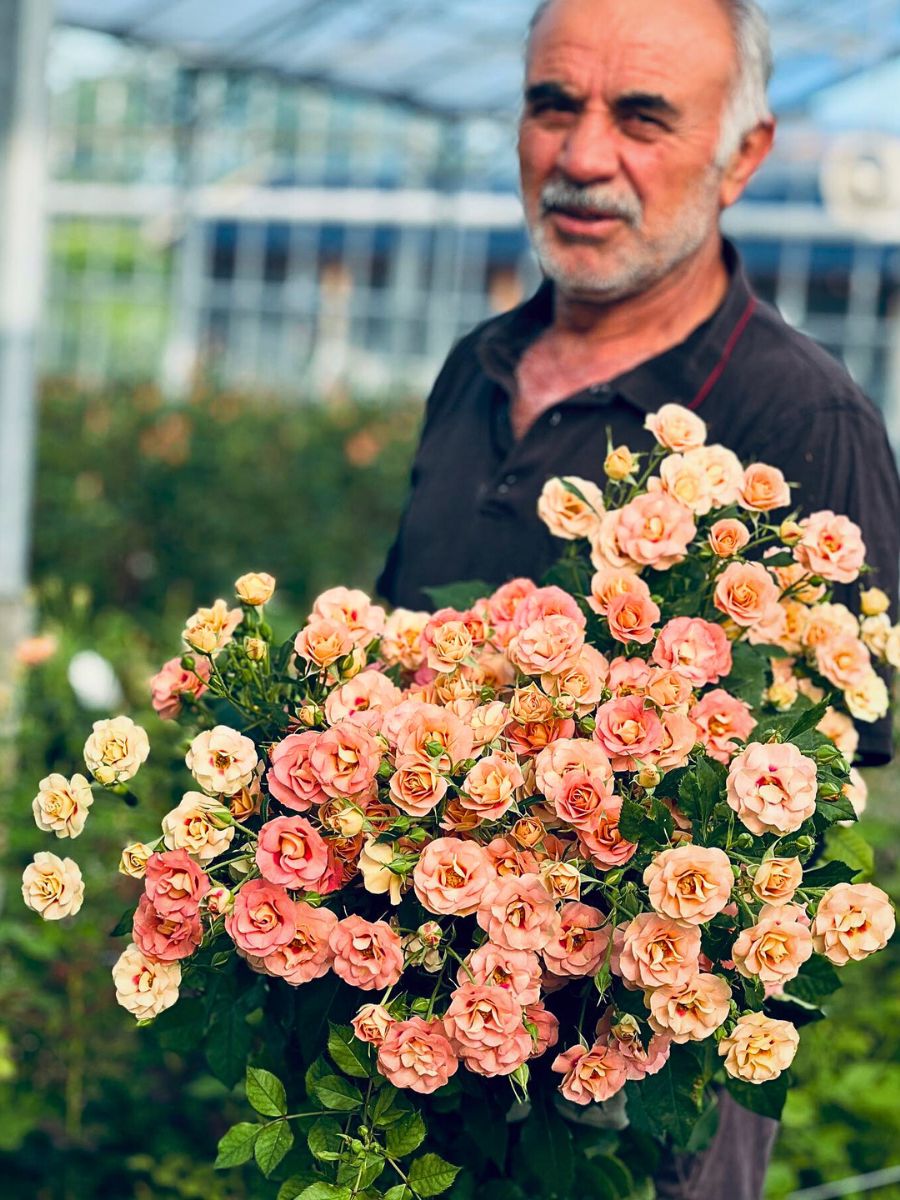
Bamboo Village Uganda CO2 Compensation
Bamboo Village Uganda is a lot more than its name says. A nursery, a plantation, a shop. Maybe you call it a movement. With the initial idea of planting and growing bamboo to absorb CO₂ and offer carbon compensation to businesses, Bamboo Village Uganda has grown into a movement with lots of different initiatives. You can read all about Bamboo Village Uganda to find out what they essentially do.
Carbon Neutral Flowers
Grower Tambuzi was the world’s first rose farm to achieve Carbon Neutral Gold Standard Status and the first Kenyan organization to sign the UN Climate Neutral Now Initiative pledge. Besides this grower's environmental efforts in solar energy, the use of as much biological control as possible, wetlands, and a dam which is fed only when the local Burguret River is in spate in the rainy season, they also invest back in the community around them. There is a lot that you can learn about the farm and its efforts towards sustainable flower cultivation and growing.
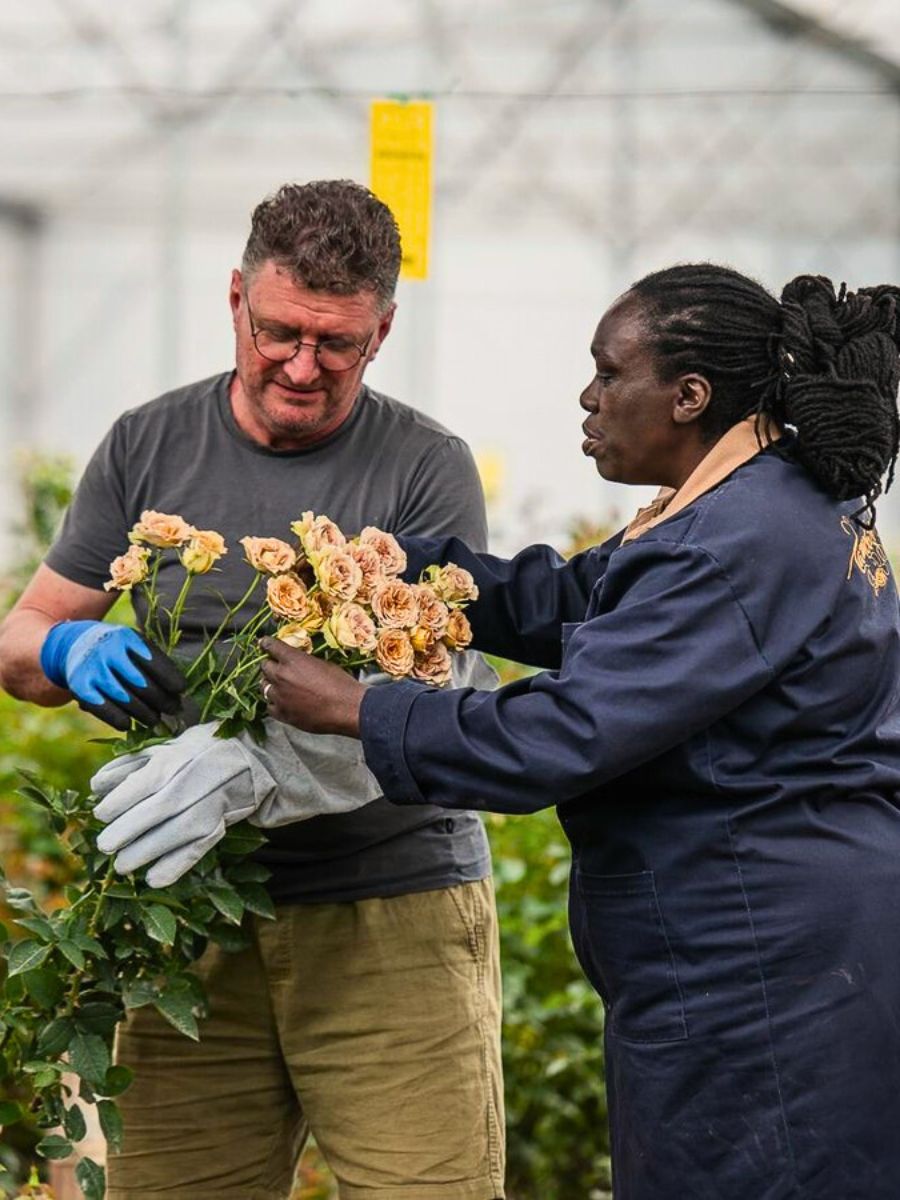
Even still, these days, an important extra asset to any flower is an environmentally friendly, carbon-neutral production. Grower Tesselaar Alstroemeria has been calculating its environmental footprint and has made large steps in terms of sustainability. The CO₂ during the production of their Alstroemeria Mistral is entirely compensated by contributing to the planting of forests in Bolivia through the Trees for All Foundation. This makes their alstroemerias a good choice for environmentally conscious florists who wish to offer their customers sustainable flowers.
Sustainable Initiatives in Floriculture Packaging
The paper vs plastic debate is also trending. Nowadays, more and more people ask for paper and cardboard solutions, instead of plastic ones. But what is the more sustainable packaging solution? Which packaging is better? A paper one? Or a plastic one? A simple question, but not such a straightforward answer. The last word about the most sustainable packaging material has not yet been spoken, but at Circular, they know for sure. They know that if recycled, plastic is better than some alternatives when it comes to packaging in floriculture. Circular Plastics has set up a system in which polyethylene (PE) and polypropylene (PP) sleeve covers are 100% collected and 100% reprocessed through modern upcycling techniques.
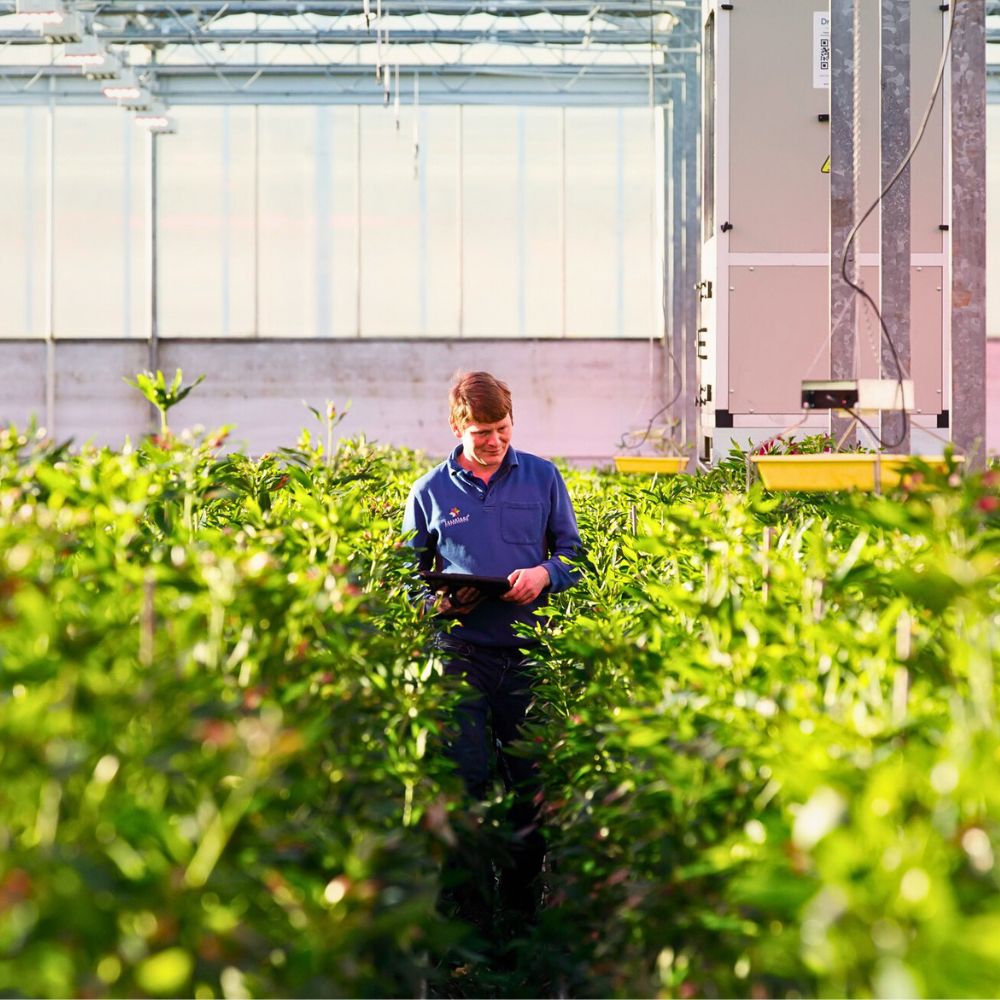
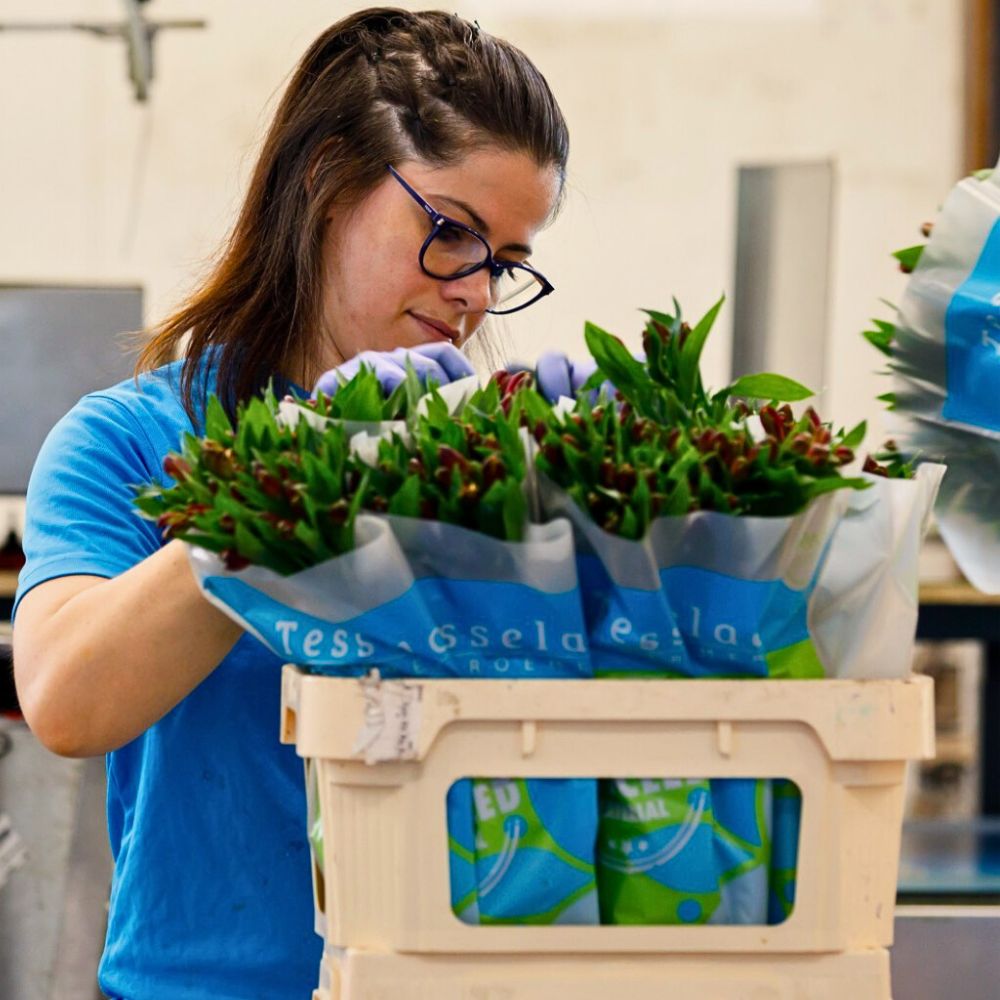
Growers also strive for the lowest possible CO₂ emissions. Several are Global or MPS-Gap and MPS-SQ certified, which means they meet strict requirements in terms of product traceability, hygiene, and social aspects. Decorum, for instance, launched the 'Feel Green' range, which involves a transparent process for the registration of the correct (organic) crop protection. The packaging and the label are made of degradable and renewable materials. The use of plastic is minimal.
More Initiatives That Create a More Sustainable Floriculture Industry
Grower Marginpar is also one of those floriculture enterprises that embrace the need for more sustainability in their floriculture practices. The grower seeks to go beyond compliance with the country’s legislation and strive to meet international best-practice standards in our industry. The farms actively pursue benefits to people—their force and communities—and the environment. The two Marginpar directors, Rob Koning and CEO Richard Fernandes, often proudly tell about how their ‘Kaizen’ model, named HAMUKA—the constant need for improvement—is linked to sustainability in floriculture. You can read more about their efforts in enhancing sustainable floriculture production practices.
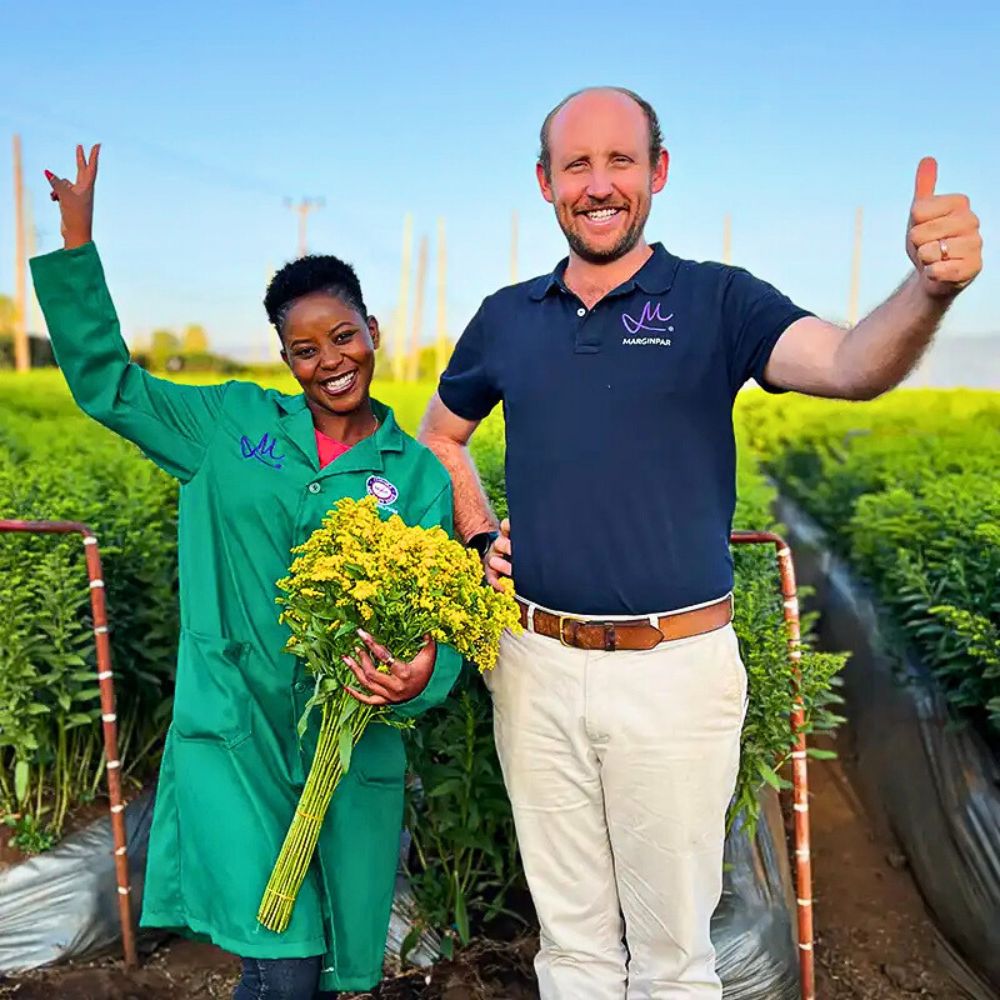
Carbon Footprint Calculation
Sustainability sells. But where does one start? Well, when one is willing to take the leap into sustainability, they soon get lost in the jungle of environmental impact. So, what exactly is the environmental impact of a floral company? And, how can one calculate their footprint? Greenhouse Sustainability is one of the institutions that could help one get started on this and explain how it all works.
Feature image by @deliflor_americas, header image by freepik

